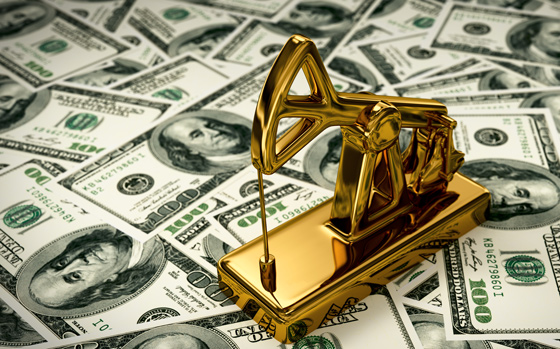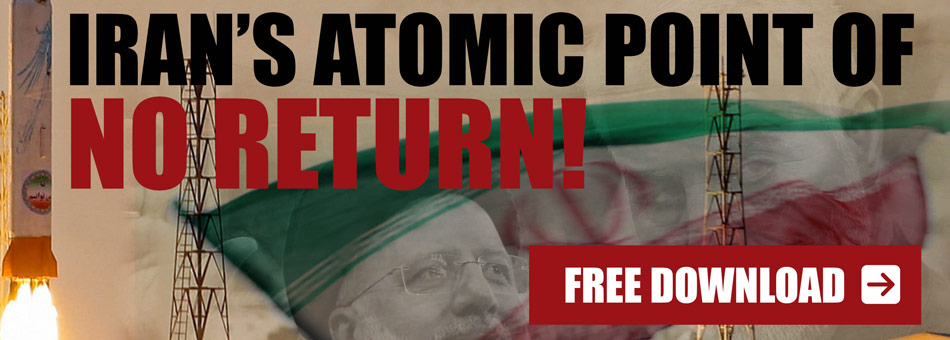This article was originally published by Jörg Guido Hülsmann at Mises Institute

A central occupation of economists is to analyze the nature, causes, and effects of incentives—the circumstances that are held to motivate human action. Economists agree on the positive role that “good” incentives play to increase production. They also agree that “perverse” incentives have an opposite impact. One of these perverse incentives is called moral hazard.
Moral hazard is the incentive of a person A to use more resources than he otherwise would have used, because he knows, or believes he knows, that someone else B will provide some or all of these resources. The important point is that this occurs against B’s will and that B is unable to sanction this expropriation immediately. The mere incentive to rely on resources provided by others is not per se problematic.
For example, the announcement of a future inheritance might prompt the prospective heir to spend more in the present than he would otherwise have spent. In such cases we would not speak of moral hazard. A genuine moral-hazard problem appears however if A has the possibility to use B’s resources against B’s will and if he knows this. Laymen would call A’s incentives a “temptation to steal” or a “temptation to act irresponsibly.” Economists, ever weary of moralizing, have espoused the technocratic expression “moral hazard.”
The essential feature of moral hazard is that it incites some A-people to expropriate other B-people. The B-people in turn, if they realize the presence of such a moral hazard, have an incentive to react against this possible expropriation. They make other choices than those that they would consider to be best if there were no moral hazard.
Many economists have therefore concluded that moral hazard entails market failures; it brings about a different allocation of resources than the one that would exist in the absence of moral hazard. Conventional economic theory explains moral hazard as a consequence of the fact that market participants are unequally well informed about economic reality. In other words, moral hazard results from “asymmetries of information” and the theory of moral hazard is therefore considered to be a part of the economics of information.
That people act on the basis of different knowledge about the real world will hardly be contested. The baker knows other things than the astronaut, the opera singer other things than the teacher of mathematics. Neither can it be doubted that people are unequally well informed about the real world. Some bakers know more about cakes, cake making, and the cake market than others, and so on. In short, information asymmetries are a universal aspect of human life as we know it. They are both a cause and a result of the division of labor. There is no reason to suppose that they are a priori harmful or a sign of imperfection. Conventional theory therefore stresses an additional condition to explain the emergence of moral hazard, namely, the separation of ownership and control. Two main cases can be distinguished: co-ownership and agency contracts.
In the case of co-ownership, any one owner has control over a given piece of property, but not exclusive control. Informational asymmetries can then produce moral hazard in conjunction with this separation of ownership and control. Whenever one co-owner of a swimming pool cannot effectively monitor the activities of his fellow-owners, the latter have an incentive to swim without cleaning up, repairing the fences and so on, thus increasing their own (monetary and psychic) income at his expense.
Similarly, in the case of an agency contract, moral hazard can arise when an economic good is not effectively controlled by its owner (the “principal”) but by a different person called the “agent,” for example, by an employee. Again, informational asymmetries produce moral hazard in conjunction with this separation of ownership and control. The agent, who is fully informed about his own activities, has an incentive to act in his own material interest against the material interests of his less informed principal. Whenever the principal cannot effectively monitor the activities of his agent, therefore, the latter has an incentive to increase his own (monetary and psychic) income at the expense of the former.
The standard case of moral hazard in an agency setting is an insurance contract. Here the insurance company is the less informed principal and the insured person is the agent. Automobile insurance, for example, creates a moral hazard for drivers; it creates an additional incentive for risky driving because other people (other clients of the insurance company) will pay a part of the costs of the agent’s accidents.
Similarly, in the presence of unemployment insurance, an unemployed person has an additional incentive to stay unemployed because other people will pay at least a part of his living expenses. Or, in the presence of health insurance, insured people will have an additional incentive to engage in risky activities or lifestyles because others will pay at least a part of the treatment in case of illness or accidents.
However, moral hazard is in no way a particular problem of the insurance industry. It can arise in almost any other field of human activity where there is a separation of ownership and control. Employees can be subject to moral hazard to the extent that they can reduce their efforts without fearing reduced pay. Debtors may be subject to moral hazard if they believe they can squander the money without negative consequences when they turn out to be incapable of paying back. Certain auditing firms have been subject to moral hazard when they sold consulting services to the very companies they were supposed to audit (for example, in the Enron case).
A central bank can produce moral hazard in the banking community if the commercial bankers perceive the central bank as a lender of last resort. The IMF can produce moral hazard among debtor governments. Taxpayers are said to be subject to moral hazard if they can evade high-tax regions, and so on. Similarly, in the literature on public choice and constitutional political economy, governments and parliaments are often portrayed as agents prone to moral hazard, whereas the voters are the less informed principals.
Important though moral hazard stemming from a deficient definition of property rights might be in practice, it is no match for moral hazard that results from a forced separation of ownership and control.
By a “forced” separation of ownership and control we mean a separation brought about against the will of its owner. Although owners might be forced both by governments and by private parties, government interventionism is far more important in practice. This is so not only because of the greater quantitative impact, but also because, in our western societies at least, interventionism is usually enshrined in the law and thus can be anticipated.
Government interventionism must not be confused with a mixed economy. In the latter the government is one of several owners and it controls only its own property. By contrast, an interventionist government commands other property owners to use their resources in a different way than these owners themselves would have used them. In so doing, the interventionist government makes some person or group A (for example itself) the uninvited co-owner of other agent B’s property. The essence of interventionism is precisely this: institutionalized uninvited co-ownership.
Government makes itself the uninvited and unwanted co-owner whenever it taxes, regulates, and prohibits. The specific forms of taxation, regulation, and prohibition are myriad. The important fact is that any form of government interventionism, by its very nature, entails a forced separation of ownership and effective control.
Taxation means that the government proclaims itself the owner of (a certain share of) resources belonging to its subjects; and that it forces them to eventually hand over these resources, which the latter would not have yielded voluntarily (otherwise one would not speak of taxation, but of donations to the government). Today taxation does not concern concrete physical items, but their monetary equivalent. It follows that, until the tax is paid, the government imposes itself as the co-owner of virtually all physical assets of the taxpayers. However, until the tax is paid, the resources in question are typically controlled by the citizen.
Regulation means that the government proscribes a certain use of certain resources. This use is typically not the one that the citizens would have chosen (otherwise the regulation would be pointless). Again, the government thereby proclaims itself the co-owner of these resources. Consider the case of price controls. If the government fixes a minimum wage rate, it effectively proclaims itself the co-owner of workers, because it does not allow them to work under conditions they see fit. And it also proclaims itself the co-owner of the capitalists or, more precisely, of the money that the latter plan to spend on labor. However, the government does not permanently control the actions of the workers, and it does not interfere with other uses of the capitalists’ money.
Prohibition means that the government outlaws a certain use of certain resources altogether. Again, it thereby proclaims itself the co-owner of all resources that could be put to the prohibited use. For example, if it prohibits the production and sale of alcoholic beverages it effectively imposes itself as a co-owner of all resources that could be used for the production and sale of such drinks. However, it does not interfere when those resources are used in other employments.
Interventionism does not abolish private property. The citizens still have ownership and control of their property, even though they have to share both ownership and control with the government and its agents. It is true that this forced co-ownership is usually a matter of degree. Increased interventionism increases the share of government control of resources, though without outlawing other people’s simultaneous control of these same resources. But the forced nature of the co-ownership itself is not a matter of degree. It is a categorical and essential feature of any intervention, be it ever so small.
Government interventionism always and everywhere entails a forced separation of ownership and control. It always and everywhere creates unwanted “partnerships” between the citizens and their government. It follows that, by its very nature, it creates a moral hazard both for the citizens and for the government. Most importantly, it creates a situation in which each of the parties involved (the citizens on the one hand and the government on the other hand) desires to expropriate the resources subject to interventionism at the expense of the other parties. First consider the reaction of the citizens to taxation, regulation, and prohibition.
From the very fact that intervention entails forced co-ownership, it follows that the citizens have an incentive to evade the intervention. They can to some extent evade it because they have some control of their property. To avoid taxation, for example, they can choose to invest capital in a country with low taxes rather than in a country with high taxes; they can choose to emigrate to low-tax countries rather than stay in high-tax places; they can choose a profession that is less taxed than other professions; or they can choose to make fraudulent declarations of their income and capital. To evade regulations, they can choose not to buy or sell commodities subject to price controls, or they can choose to buy and sell them on the black market. To evade prohibitions, they can buy and sell prohibited items on the black market. However, operating on the black market is risky and thus very costly, and evasion to other countries is costly too. Thus it follows that there is an incentive for the citizens to use a greater part of their property for personal consumption rather than invest it. Hence, the general tendency of interventionism on the citizens is to entail excessive consumption and to make production more costly because of the necessity to evade the intervention.
But moral hazard also comes into play on the side of the government itself. Governments rely on the resource use that comes through taxation and regulation. They will therefore tend to tax more and regulate more in order to neutralize the ways in which the citizens evaded its previous intervention. It will seek to “close the loopholes.” We have here a basic mechanism of the dynamics of government interventionism. Interventionist governments have an incentive to extend taxation to all branches of economic life; to regulate industries that have so far escaped regulation; and to beat into submission the countries that serve as tax havens. The ultimate result is to reinforce the tendencies that we characterized above: excessive consumption and insufficient production; in short, a general impoverishment of society.
It is not co-ownership per se that causes these excesses. They are caused by the uninvited and unwanted co-ownership that springs from interventionism.
Notice that our foregoing analysis in no way depends on the existence of asymmetrical information. We can assume for the sake of argument that all citizens are perfectly aware of the government’s activities, and that the government is also perfectly well informed about the activities of all citizens. All of this would not alter the picture. Government interventionism entails moral hazard both on the side of the government and on the side of the citizens. And this moral hazard cannot be neutralized by choosing appropriate contractual devices, because it has no contractual basis at all; it is imposed. It cannot be sidestepped by choosing to avoid the moral-hazard-prone situation altogether, because the situation itself is imposed. The very meaning of interventionism is, as we have said, to overrule the choices of property owners.
And similarly, the workings of moral hazard cannot be eliminated or diminished by correct expectations, as in the case of moral hazard on the free market. The case is exactly the reverse. It is precisely when the citizens correctly anticipate how high the next tax will be, and when it will hit them, that a moral hazard will start bearing on them and incite them to evade the tax.
Let us now turn to the discussion of an important case in which government interventionism produces moral hazard on a large scale: monetary interventionism.
The fundamental intervention, on which all other interventions in this field are built, is the imposition of a legal tender. The latter is a means of payment that the market participants are obliged to accept, even if they made contracts that stipulated payments in terms of other media of exchange. This intervention creates a moral hazard for the market participants to hoard or export the media of exchange that in their eyes are better than the legal tender, but which they are legally bound to use at par with the legal tender. The paradoxical result is that only the legal tender—the medium of exchange that everybody seeks to avoid —remains in circulation. Economists call this phenomenon “Gresham’s Law.”
But fiat paper money also creates moral hazard for citizens, banks, and governments because they sooner or later come to realize that the masters of the printing press have the power to bail out virtually any bankrupt firm or government.
All contemporary monetary systems are based on such legal tender privileges. Paper money—as well as electronic money (“central-bank liquidity”)—does not compete with other monetary products on the free market, but is imposed by special privilege. It is therefore called fiat paper money. This institution is of great interest from the point of view of the theory of moral hazard. In fact it entails moral hazard on the greatest imaginable scale, again, both on the side of its producer and on the side of its users.
Fiat paper money creates moral hazard for the producer because he has the possibility of creating ex nihilovirtually any amount of money and, thus, to buy virtually any amount of goods and services for sale. The only limit to this capacity is the hyperinflation that invariably results in the case of a great inflation of the money supply.
But fiat paper money also creates moral hazard on the side of the money users—the citizens, the banks, and the governments—because they sooner or later come to realize that the masters of the printing press have the power to bail out virtually any bankrupt firm or government. Thus they engage in more or less reckless financial planning, expecting that the monetary authorities will not allow a great mass of reckless planners to go bankrupt. This speculation has been borne out by the last 30 years Public and private debts are at record heights all over the world.
Monetary theorists were aware of this danger early on, even though they did not use the word “moral hazard” in this context.
Here we should mention in the first place all defenders of sound money— that is—of competitive money, such as Ludwig von Mises, F.A. Hayek, Murray Rothbard, and many other economists of the Austrian School.
The idea that rules could prevent large-scale moral hazard in a fiat paper money system defies human logic. After all, the only possible use of a printing press is to produce more money than would have been produced on a free market.
Financial bubbles are the unavoidable result of such a state of affairs. If more or less every major participant to the financial market is subject to moral hazard, then in due time even the smaller traders realize that the bigger fish play the moral hazard card, and thus they too venture to set out on the same path. This means that the market participants sooner or later come to base their plans on the availability of a far greater quantity of goods and services than is really available in the economy. In short, paper money by virtue of its mere existenceproduces massive error on a large scale, until the bubble bursts in a crisis.
Again, as in the other cases of interventionism- induced moral hazard, these effects cannot be neutralized, avoided, or diminished through anticipations. And this means that they cannot be managed through the management of expectations. Mainstream economists have in the past 30 years labored to bring expectations into the picture of monetary policy. The next 30 years will presumably be needed to take account of institutionalized moral hazard. The problem is that our monetary system will not survive that long, if we can extrapolate the speed of the events of the past 30 years.
***
Jörg Guido Hülsmann is senior fellow of the Mises Institute where he holds the 2018 Peterson-Luddy Chair and was director of research for Mises Fellows in residence 1999-2004. He is author of Mises: The Last Knight of Liberalism and The Ethics of Money Production. He teaches in France, at Université d’Angers. His full CV is here.










0 Comments